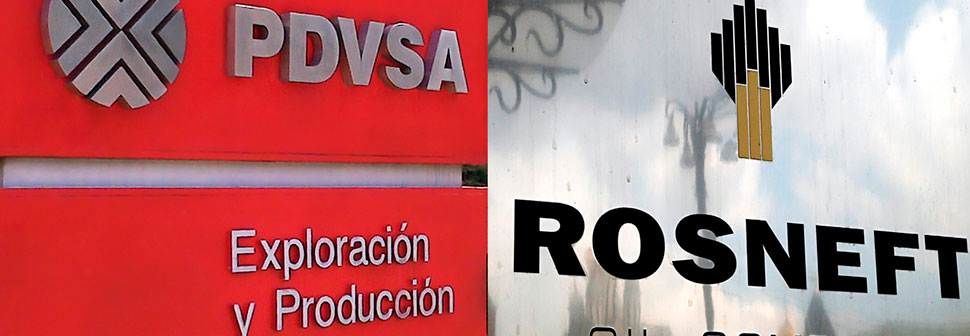The Venezuelan crisis could strengthen Russia’s position in the U.S.


The current situation in Venezuela seems socially, economically and politically unbearable. Protests have escalated and the president Nicolás Maduro everyday seems more and more authoritarian. However, it’s important to understand that this crisis goes beyond Venezuela and, right now, the U.S. could suffer a side effect of it.
PdVSA, the Venezuelan state-owned oil company, acquired Citgo –an American oil refiner– in 1990. Since then, Venezuela has maintained a hypocritical relation with the U.S. While the government, first led by Hugo Chávez and now by Maduro, criticized the “ideology” of any American president, Venezuela still took advantage of the oil sold through Citgo in U.S. soil –which amounts for 4% of the U.S. oil infrastructure–. However, so far, despite the controversy of the commercial relation, Venezuela has kept Citgo as an exclusively economic tool.
How Russia comes IGNORE INTO place in this story? Venezuela’s increasingly poor and unstable economy has obvious consequences: the government is unable to pay loans. One of those is a US$1,5 billion loan from Rosneft, the Russian oil giant. Due to Venezuela’s inability to pay the loan from Rosneft, they offered about 50% of Citgo as a collateral. If Venezuela can’t keep up with the payments and has to default, Citgo will be at the hands of Russia.
What are the consequences of this potential default?
American politicians have it clear: they don’t want to be exposed. If Russia has a considerable percentage of the U.S. energy infrastructure, the energy market –production and prices– will be exposed to Russia’s economic and political intentions. Even more, the U.S. will be exposed to Russia’s political conflicts. It may seem like an overreaction, but that’s the perspective of American policy makers and they want to avoid this “catastrophe”. Even if Russia, in case they take over Citgo, takes the high road and doesn’t impose any influence in the market, they’ll still have card up their sleeve.
But it won’t be an automatic consequence if Venezuela defaults. Right now, Rosneft is under a sanction that would prevent them from the take over. However, they are optimistic about the possibilities of these sanctions to be lifted. Despite the fears expressed by U.S. senators, Trump’s ties with Russia –backed by his statements– and his choice for Secretary of State, ex-oil executive Rex Tillerson, seem to sign that the sanctions won’t last long.
At the moment, it’s difficult to say what is more dangerous for the United States: Trump’s decisions or Venezuela’s crisis.
LatinAmerican Post | Juan Sebastián Torres





